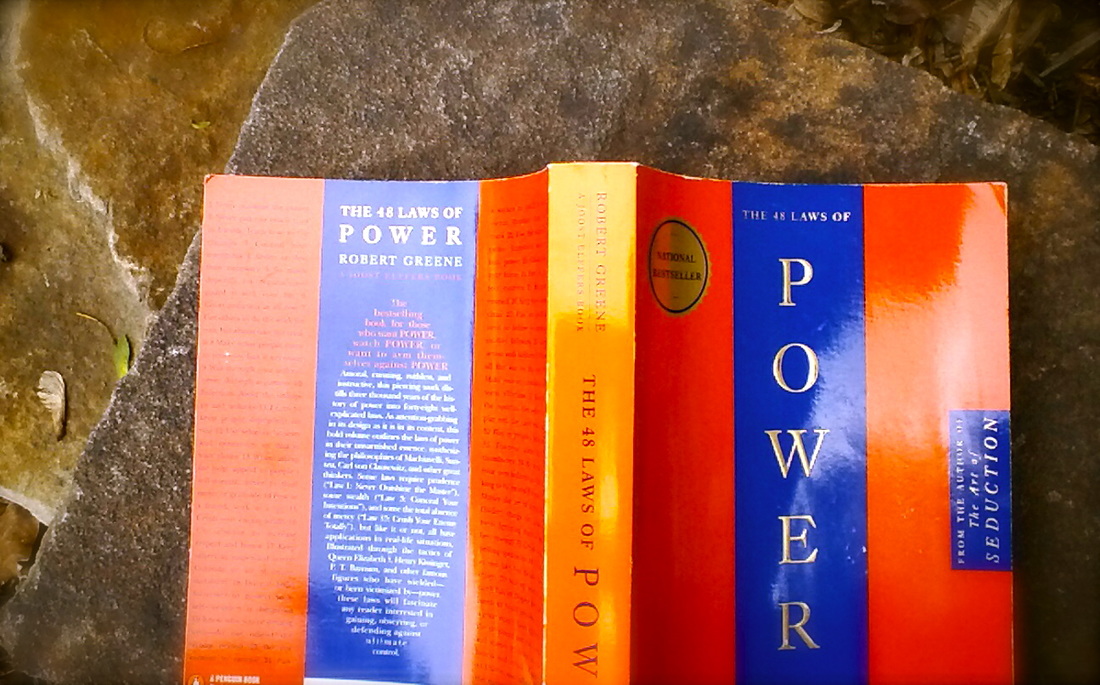This is one of the most controversial books I've ever read and probably will ever recommend. By 'controversial' I don't mean that some people hate it {hundreds on Goodreads} and more people idolize it {thousands on Goodread & 50 Cent}. I mean that it provoked disagreement and agreement within myself.
Any man who tries to be good all the time is bound to come to ruin among the great number who are not good. Hence a prince who wants to keep his authority must learn how not to be good, and use that knowledge, or refrain from using it, as necessity requires.
In a sense, I view Green's The 48 Laws of Power as a thoroughly researched account of people from all civilizations and time periods who quested for 'power'. Greene incorporates hundreds of personnel in order to draw from them the 'laws' for power-playing. {Con-artists, kings, bankers, musicians, writers, industrialists, politicians, and seducers}
In this way, the book made me extremely aware of a certain type of psychology that exists often within people. The desire to gain power over others entices certain types of people - and not just a Julius Caesar or an Adolf Hitler. I'm talking about you and me. Part of the reason that Greene says he wrote the book was to wake many people from naivety.
And this leads me to my main qualm with this book: a veiled endorsement of the practices of dishonesty by the author: lies, betrayals, cons, fame-seeking, and even violence. By 'endorsement', I don't mean that Greene ever says 'slit your best friend's throat'. But what he does endorse is the idea that it can profit you in the long term to cheat, lie, steal, and emotionally harm others. That is, that Greene dorms in the same school of thought as Niccolo Machiavelli, who wrote in The Prince:
In this way, the book made me extremely aware of a certain type of psychology that exists often within people. The desire to gain power over others entices certain types of people - and not just a Julius Caesar or an Adolf Hitler. I'm talking about you and me. Part of the reason that Greene says he wrote the book was to wake many people from naivety.
And this leads me to my main qualm with this book: a veiled endorsement of the practices of dishonesty by the author: lies, betrayals, cons, fame-seeking, and even violence. By 'endorsement', I don't mean that Greene ever says 'slit your best friend's throat'. But what he does endorse is the idea that it can profit you in the long term to cheat, lie, steal, and emotionally harm others. That is, that Greene dorms in the same school of thought as Niccolo Machiavelli, who wrote in The Prince:
I couldn't disagree more with Mr. Machiavelli and Mr. Greene in this sense. But for that reason, I recommend to anyone who does not want to be a victim of power-players to read it and know how to avoid or beat their system.
For a start, here is something I wrote on Mr. David Ogilvy and his commitment to honest business. And here is another about Steve Jobs' powerful gift to you. His tool is much stronger than any con man's lie. That's because real power is in the making not the taking.
{ * } Robert Greene's other works include Mastery, The 33 Strategies of War, The Art of Seduction, and The 50th Law. I've love Mastery. Read my thoughts on it here. I just purchased The 33 Strategies of War after hearing that it was Ryan Holiday's favorite. Greene keeps a blog which you can find here, though lately it hasn't been the most active.
For a start, here is something I wrote on Mr. David Ogilvy and his commitment to honest business. And here is another about Steve Jobs' powerful gift to you. His tool is much stronger than any con man's lie. That's because real power is in the making not the taking.
{ * } Robert Greene's other works include Mastery, The 33 Strategies of War, The Art of Seduction, and The 50th Law. I've love Mastery. Read my thoughts on it here. I just purchased The 33 Strategies of War after hearing that it was Ryan Holiday's favorite. Greene keeps a blog which you can find here, though lately it hasn't been the most active.
* * *



















